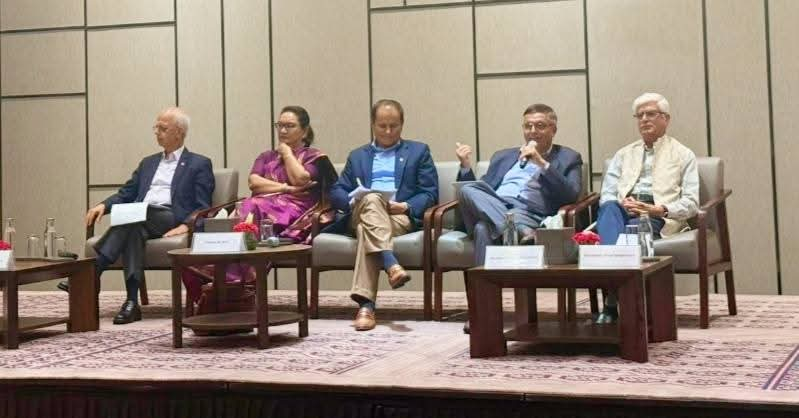Kathmandu, 9 July 2025
In a high-level seminar organized by the Nepal Institute for International Cooperation and Engagement (NIICE) today in Kathmandu, national and regional experts raised urgent concerns over the growing threat of terrorism in South Asia and Nepal’s increasing vulnerability as a transit hub.
The seminar titled “Terrorism in South Asia: Challenges to Regional Peace and Security” brought together over 150 participants, including former ministers, security analysts, academics, diplomats, and members of civil society, aiming to forge a common understanding and response to terrorism in the region.
Transit Risks and Nepal’s Geopolitical Exposure
Sunil Bahadur Thapa, Advisor to the President of Nepal and former Minister of Industry, warned that Lashkar-e-Taiba (LeT), a Pakistan-based terror group with ties to Al-Qaeda, is operating within Nepal and using the country as a strategic transit point. “This poses a serious threat not just to Nepal, but to regional security at large,” he said, urging the government to develop a coordinated national security mechanism and implement de-radicalisation programs to address ideological extremism.
Regional Instability and SAARC Paralysis
Dr. Minendra Rijal, Former Defence Minister, emphasized that a terrorist attack on India has inevitable spillover effects on Nepal due to the interconnected nature of the region. He held Pakistan's continued support of terror networks responsible for weakening SAARC and blocking South Asia’s economic integration. He called for global unity against terrorism, invoking the post-9/11 international solidarity as a model.
Financial Networks and Cross-Border Terrorism
Member of Parliament and former Minister Chanda Chaudhary highlighted the need to curb money laundering and illicit financial flows as a key method to dismantle terrorist networks. “Controlling financial enablers is as critical as boots-on-the-ground strategies,” she noted.
Regional Response and Diplomatic Shifts
Former Minister Shisir Khanal pointed to India’s strong military and diplomatic response, including 'Operation Sindoor', following recent terror attacks. He suggested this action has set a new standard for how South Asia might respond to terrorism collectively.
Policy and Security Reform
Former Minister of Foreign Affairs N.P. Saud stressed that Nepal, along with regional powers, must develop a clear, joint mechanism to address the transnational nature of terrorism. “Terrorism doesn’t discriminate; it targets everyone-therefore, our response must be collective and strategic,” he said.
Double Standards and Global Accountability
Former Major General Dr. Purna Silwal underscored the importance of avoiding double standards in counter-terrorism, warning that selective condemnation undermines the global fight against extremist violence.
Nepal’s Past and Present Exposure
Sumitra Karki, NIICE Director, recalled Nepal’s history of terror incidents, including the hijacking of Indian Airlines Flight IC-814 from Kathmandu in 1999 and the April 2025 Pahalgam terror attack that killed 26 civilians, including a Nepali national, to highlight Nepal’s enduring vulnerability.
Terror Roots and Admission from Pakistan
Dr. Pramod Jaiswal, NIICE Research Director, stated that Pakistan has long served as a hub for terrorism in South Asia, citing a recent public admission by Pakistan’s Defence Minister Khawaja Muhammad Asif that the country had supported, trained, and funded terrorist groups for decades to serve Western interests.
A Call for Collective Action
The seminar concluded with a unified message: South Asia requires strategic cooperation, credible intelligence-sharing, and ideological counter-narratives to dismantle the structures of terrorism. For Nepal, this means taking proactive steps to strengthen its border security, counter radicalisation at the community level, and ensure no group exploits its territory for regional unrest.
As terrorism continues to evolve and exploit geopolitical vulnerabilities, Nepal’s role in ensuring peace and stability in South Asia has never been more critical.